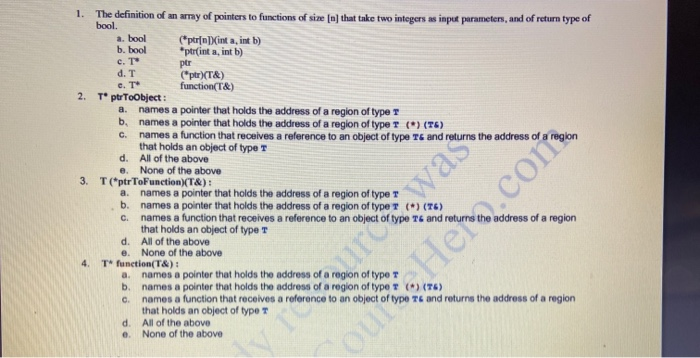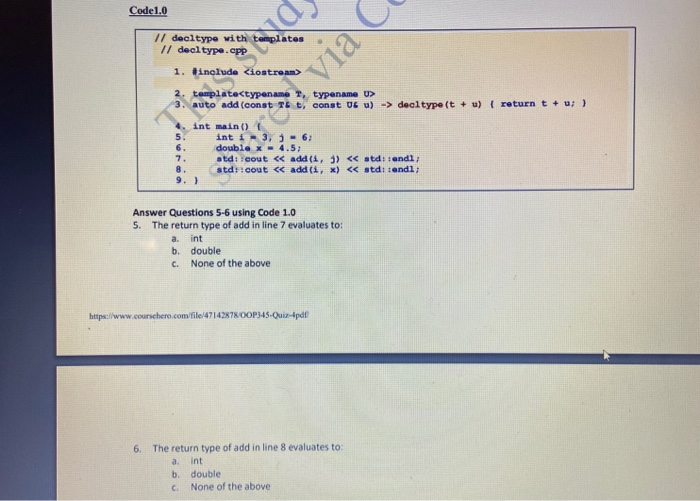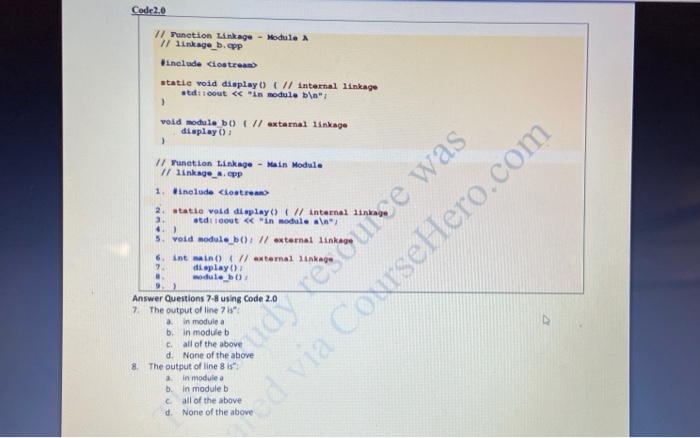1. The definition of an array of pointers to functions of size (ol that take two integers as input parameters, and of return type of bool. a. bool (*pte[n])int a, int b) b. bool *ptr(int a, int b) c. 2. 3. d. T (*ptr)(T&) e. Te function(T&) T* ptr ToObject : a. names a pointer that holds the address of a region of type T b. names a pointer that holds the address of a region of type T () (T6) C. names a function that receives a reference to an object of type Te and returns the address of a region that holds an object of type T d. All of the above e. None of the above T("ptr ToFunction)(T&): a. names a pointer that holds the address of a region of type T b. names a pointer that holds the address of a region of type T (*) (76) C names a function that receives a reference to an object of type TG and returns the address of a region that holds an object of type T d. All of the above e. None of the above T* function(T&): a. names a pointer that holds the address of a region of type T b. names a pointer that holds the address of a region of type T (*)(T6) o names a function that receives a reference to an object of type Te and returns the address of a region that holds an object of type T d. All of the above e. None of the above 4. Code 1.0 // decltype with templates // deeltype.cpp 1. #include
decltype (t + u) ( return t + u;) 4. int main() { int i 3 , 6: double x- 4.5; atd::cout // ascending order comparison template bool ascending (Ta, Tb) (return a > b: ) // descending order comparison template bool descending (T a, Tb) { return a void sort(T* a, int n, bool (*comp) (T, T)) { for (int i -n- 1; i > 0; i--) { for (int j = 0; j void display (T* a, int n) { for (int i 0; i // order options enum class Order (ascending, descending); // order comparison template class Compare Order order; public: Compare (Order o) ! order (o) () bool operator () (T6 a, T. b) const { return order - Order:: ascending ? a > b a b ; comp) // bubble sort template void sort (T. a, int n, const Compare for (int i-n- 1; i > 0; i--) { for (int j = 0; j void display (T* a, int n) for (int i = 0; i (Order: ascending) ) display (a, n): sort(a, n, Comparecint> (Order:descending)): display (a, n): Answer Questions 11 using Code 4.0 11. Compare is a. Function object b. Function pointer C. Lambda function d. All of the above e. None of the above Code5.0 1. Jinclude 2. template 5. int sub (int i, Punc func) { return func(i); } 6. int main() { Int k - 4; stdtscout > <><>














